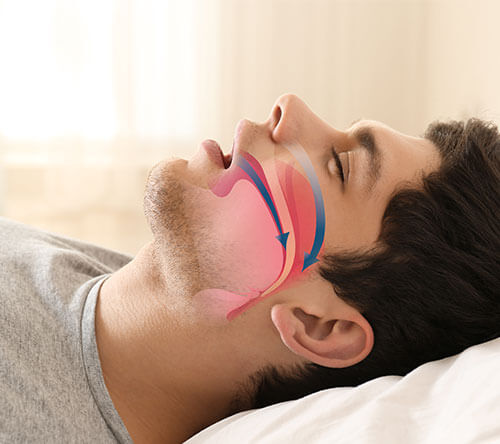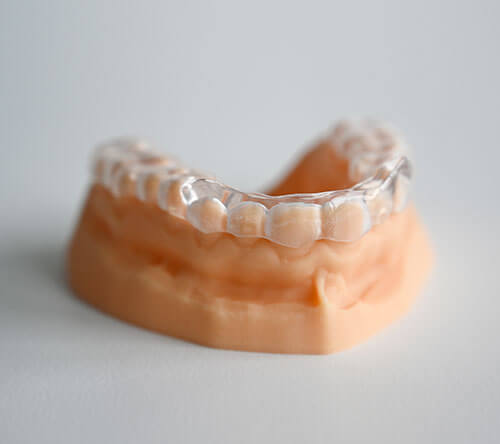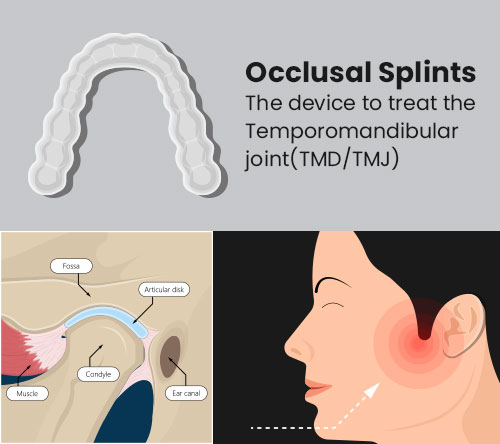
SNORING, TEETH GRINDING (BRUXISM) AND APPLIANCES
Grinding or clenching your teeth (bruxism) can not only damage your teeth, cause headaches and jaw joint (TMJ) pain, but it can also be a sign of a sleep disorder. Sleep bruxism (grinding/clenching at night) is considered a sleep-related movement disorder and can be related to snoring and sleep apnoea, which can have effects on your general health.
SNORING AND SLEEP DISORDERED BREATHING
Snoring is not a laughing matter (especially in children). It indicates a physical obstruction in your airway and a reduction in oxygen levels that affects every part of your body. It also disrupts the sleep of your bed partner!
Medical research shows that sleep disordered breathing (causing sleep deprivation) is linked to chronic health problems like high blood pressure, obesity, depression, diabetes, heart disease, dementia/alzheimers, cancer, strokes and the list goes on.
In children, enlarged tonsils and adenoids can physically block their airways. This results in changes to their breathing and swallowing patterns, which affects their growth and development of their face and jaws. This can often result in narrow upper jaw, crowded/crooked teeth, underdeveloped lower jaw, mouth breathing or open bite. Interceptive orthodontic treatment is often called for in this group of patients.
It comes as a surprise to most of our patients that a dental assessment can reveal that a patient may have some sleep disorders! Here at Bright-On Bay Dental, Dr Janice looks beyond the teeth and brings a holistic approach to looking after her patients.
BRUXISM
Tooth grinding/clenching is usually an action that most people don’t realise is happening. The damage that grinding/clenching your teeth during the day (awake bruxism) or night (sleep bruxism) can be reduced with the use of appliances like a splint or a mandibular advancement splint.
Clenching/grinding teeth can be related to:
- Sleep disorders
- Stress
- Alcohol, caffeine, smoking and recreational drugs
- Medication
If you have experiencing any of the below symptoms, please book an appointment:
- Headaches
- Tired/stiff muscles of the head and neck region
- Pain in the jaw (TMJ) joint located in front of your ear
- Ear pain
- Clicking/locking jaw joint
- Worn/chipped or cracked teeth
- Tooth indentations on the tongue or cheek
Frequently Asked Questions
Interested in a sleep screening questionnaire?
Fill in the questionnaire to see if you have a high likelihood of having obstructive sleep apnea. Book in for your appointment with us or your doctor to look into this further with you.
Where do I get my sleep study?
For most people, you can have a sleep study done in the convenience of your own home and bed!
Go to https://www.aerhealthcare.com.au/ for more information on how you can book a sleep study.



